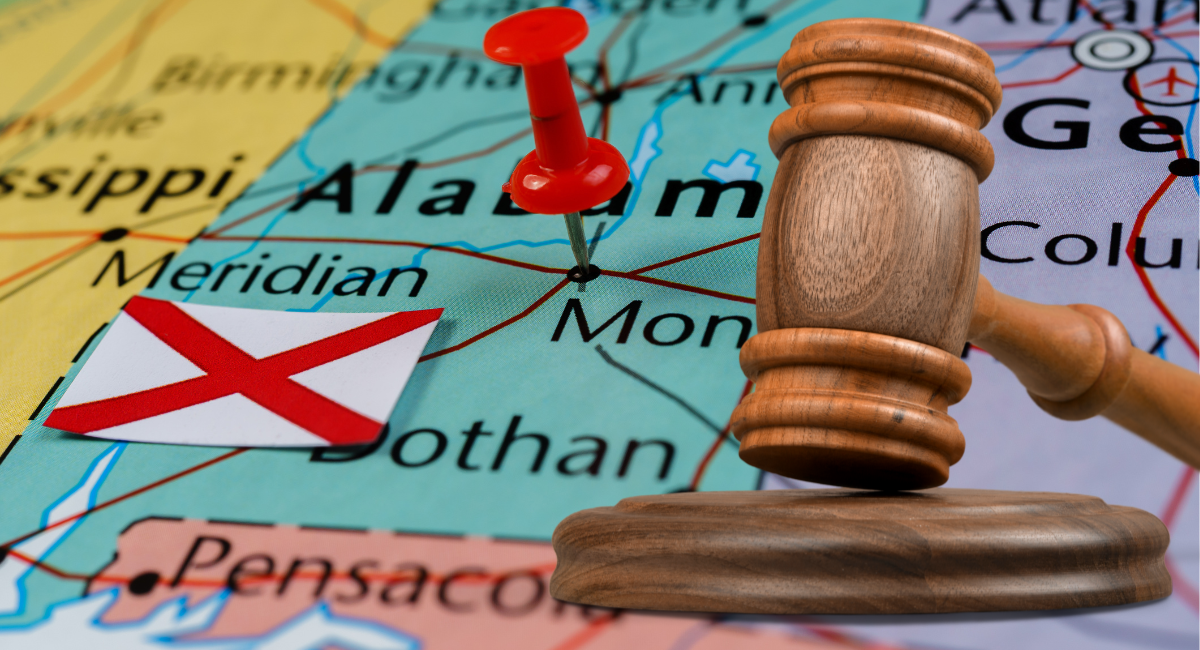For more than 60 years, from Selma in 1965 to Shelby County in 2013, the state of Alabama has led the way in fighting to deny Black citizens their right to vote.
The latest chapter in that battle is the Allen v. Milligan redistricting case.
In it, the state’s Republican Party-dominated legislature and governor are defying even the very conservative current Supreme Court, that in June upheld a lower court’s finding that the state’s proposed new Congressional voting districts were unfair to 27% of Alabama’s population, its Black citizens.
In fact, the new voting district map the state offered in response to that ruling seems worse.
“This map, and the Republican politicians who supported it, would make George Wallace proud,” former U.S. Attorney General Eric Holder told the Alabama Political Reporter. “It very arrogantly defies a very conservative United States Supreme Court decision from just two weeks ago.”
Wallace, known for his “segregation now, segregation tomorrow, segregation forever” speech at his 1963 inauguration as Alabama’s governor, was a four-time presidential candidate.
Defying SCOTUS
Redistricting, as the process is called, is routinely done all across the country every 10 years to reflect new data from the most recent Census – 2020’s, in this case.
The original January 2022 ruling in Alabama, by a three-judge panel of the federal District Court for Northern Alabama, ordered the state back to the drawing board to reconfigure its newly drawn maps to give Black voters a chance to choose their representatives by having a voting-age majority in at least two of Alabama’s seven Congressional districts.
But Republicans continue to hold six of Alabama’s seven seats in Congress, because when the Supreme Court agreed in February 2022 to hear an appeal of the District Court’s ruling, it nonetheless allowed the maps in question to stay in place for that year’s elections, with predictable results.
Later in the year, the Supreme Court also blocked a challenge to new maps in 30% Black Louisiana, where only one of the six Congressional districts have a majority Black voting-age population. This year, the Court reversed itself on June 26 and will let the challenge go forward.
Meanwhile, in the maps Alabama’s legislature and governor arrived at in July, Black voters are in the majority in only one district, the 7th, as has been the case since 1992.
Those maps were presented to Alabama’s District Court on Aug. 14, in response to the High Court’s June 9 decision this year that the lower court had been correct in finding the GOP-led state legislature violated the 1965 Voting Rights Act by drawing – gerrymandering – the maps in such a way as to deny citizens equal representation at the polls. The High Court gave Alabama until July 21 to revise them.
Diluting the Black vote
But the new maps, produced just before that deadline, reduce the Black majority in the only district that had one, District 7, from 55% to just over 50%.
In District 2, the percentage of Black voters increases from 30% to almost 40%, likely not enough to produce a winning margin.
The rest of that 27% of the state’s population is divided between the other five districts to comprise less than 20% in each.
Republican Governor Kay Ivey signed off on the proposed new maps immediately.
In theory, Alabama’s Black population can reasonably be expected to send two representatives to the U.S. Congress in the state’s seven-seat delegation.
Black voters in Alabama are overwhelmingly Democrat-supporting, more than 90% united in their choices and, besides District 7, concentrated in District 2 and its neighboring districts.
But candidates who can earn that support win only about 15% of white votes, and “Black Alabamians enjoy virtually zero success in statewide elections,” the District Court noted.
The new maps, redistricting experts say, would fail to meet the court’s requirement that they level the playing field, or even, as the court had ordered, at least come close to doing so.
At the Aug. 14 hearing to consider those new maps, one of the three judges on the District Court panel, Terry F. Moorer, an appointee of former President Donald Trump, asked if Alabama had chosen to “deliberately disregard” the court’s previous instructions. The other two judges on the panel had similar questions, the Associated Press reported.
Of the past 15 relevant contests in the state, the only one a Black-voter-preferred candidate would have won using these maps, a Brennan Center for Justice analysis found, was the December 2017 Senate race in which Doug Jones defeated the Republican Roy Moore, who’d been accused of sex crimes with teenagers.
Members of the legislature who chose the currently proposed maps out of many submitted for their consideration said they were lobbied by national figures including Speaker of the House of Representatives, Kevin McCarthy, and Alabama Sen. Tommy Tuberville.
The District Court has yet to issue a ruling on the new maps or indicate when it might, but with next year’s elections looming, if it rules against the state’s proposals, it may appoint a cartographer of its own choosing to have them in place in October.
A nationally known cartographer and redistricting expert, Stanford Professor Nathaniel Persily, on July 24 abruptly stepped away from the Alabama assignment he’d been given in February and has declined repeated requests from Ethnic Media Services to discuss the situation.
Related: In Surprise Ruling, Supreme Court Delivers Major Victory for Alabama Voters





